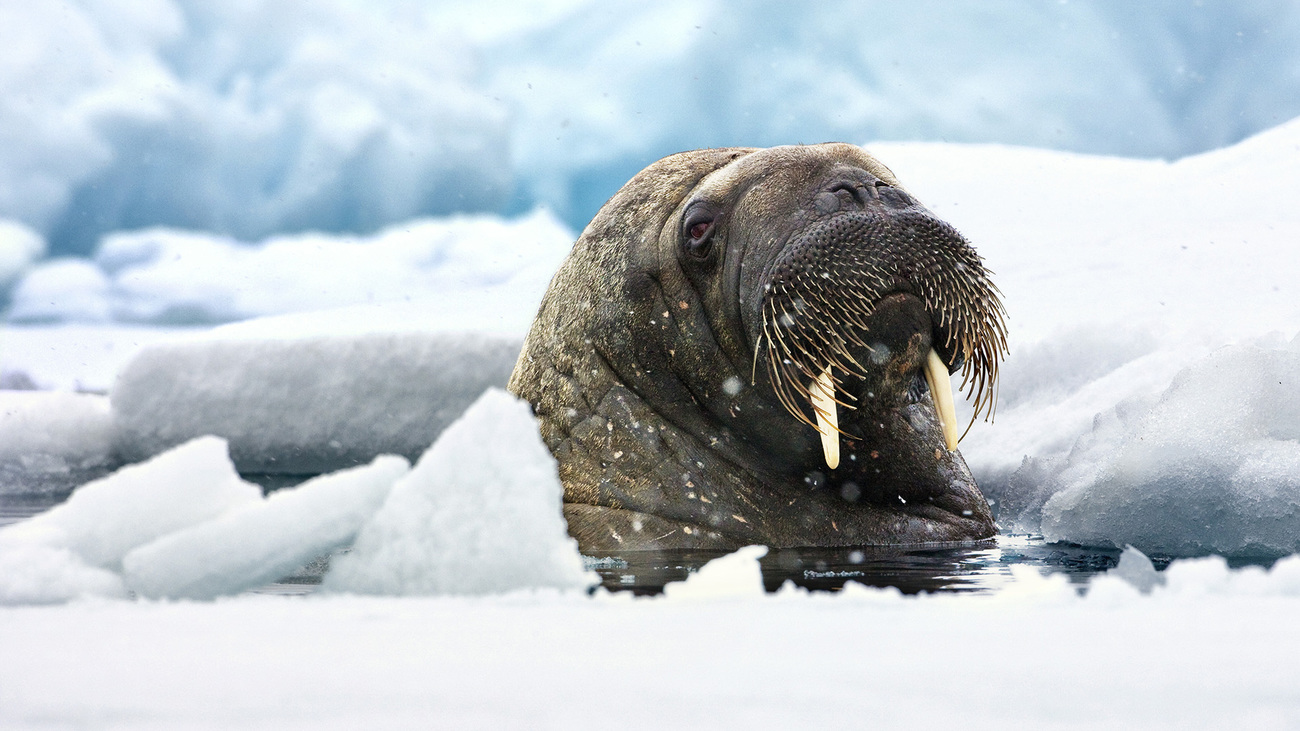Seals
Seals are a group of three families and 33 species of web-footed aquatic mammals. They have round bodies that taper at the ends and a thick layer of blubber that keeps them warm, stores nutrients, and helps them float. Seals can come in a range of sizes, from the 1.1 metre-long Baikal seal to the 6.5 metre-long elephant seal that can weigh up to 3,700 kilograms.
The three families of seals are eared seals (Otariidae), earless seals (Phocidae), and the walrus (the sole member of Odobenidae). Eared seals have visible ears, larger fins, and more prominent fur than earless seals. Earless seals are often called “true seals.” Earless seals do have ears, just no visible ear flaps.
Seals live on every continent on Earth, with some widespread species and others that are found only in one place. While many species spend most of their time in the water, they also live partially on land (or sea ice) during specific events like mating or giving birth. Almost all seals live in seawater, aside from on—the small Baikal seal that lives in the freshwater Lake Baikal in Siberia.
Mating season is a very competitive time for male seals, who fight with their peers to prove dominance and earn the attention of females. The males are so focused on the task at hand that they don’t even eat during this period, as they might lose a female to another seal while feeding. Males will mate with as many females as possible during this time and do not take part in the pup-rearing process.
Female seals always give birth on land or sea ice. They feed their pups for up to an entire month until they’re large and strong enough to swim and live independently. Mothers never leave their pups during this period and don’t eat anything themselves, relying on their stores of blubber for sustenance.
Seals are essential members of their ecosystems, both as predators of fish, squid, shellfish, seabirds, and other marine life and as prey for hunters like polar bears, orcas, and sharks. Their swimming also creates currents in the water, which cycle nutrients from the sea to the shore.
What is a seal’s scientific name?
The scientific name for the seal group is Pinnipedia, which comes from the Latin words pinna for fin or wing and pes for foot.
Within the Pinnpedia group, there are 33 species of seals, each with their own name. Some of the most well-known examples include Lobodon carcinophaga (crabeater seal), Hydrurga leptonyx (leopard seal), Mirounga angustirostris (northern elephant seal), and Mirounga leonina (southern elephant seal).
Are seals endangered?
The 33 species of seal range from least concern to extinct on the IUCN Red List.
Both the Japanese sea lion and the Caribbean monk seal have not had confirmed sightings in the past 50 years and are considered extinct. There are currently no critically endangered seals, according to the IUCN, but the Galapagos fur seal, Hawaiian monk seal, Caspian seal, and Mediterranean monk seal are all endangered. The Mediterranean monk seal is currently considered the most at risk seal species.
Commercial hunting and accidental deaths through entanglement or bycatch are two significant causes of seal mortality. Climate change also poses an urgent threat to many species, particularly those that depend on sea ice.
Where do seals live?
Seals live across the globe, though many prefer colder or polar waters. Some species have very specific ranges, such as the Hawaiian monk seal, which lives throughout the Hawaiian Islands, or the Galapagos fur seal, which lives around the Galapagos archipelago. There’s also the Caspian seal, which lives only in the Caspian Sea.
These species tend to be the most vulnerable to endangerment because events in their specific areas can affect the entire population—compared to a widespread species like the crabeater seal, which lives throughout the entirety of the Antarctic and boasts a population of around 4,000,000.
Because seals are semi-aquatic, they also live partially on land. Many species of seal will use coasts or sea ice to rest, thermoregulate, mate, and give birth. Some always remain close to the coast, like the walrus, because they prefer shallow waters and rest on land often.
Threats
Seals face various threats, most of which span across all species. These include hunting, entanglement, climate change, and disease.
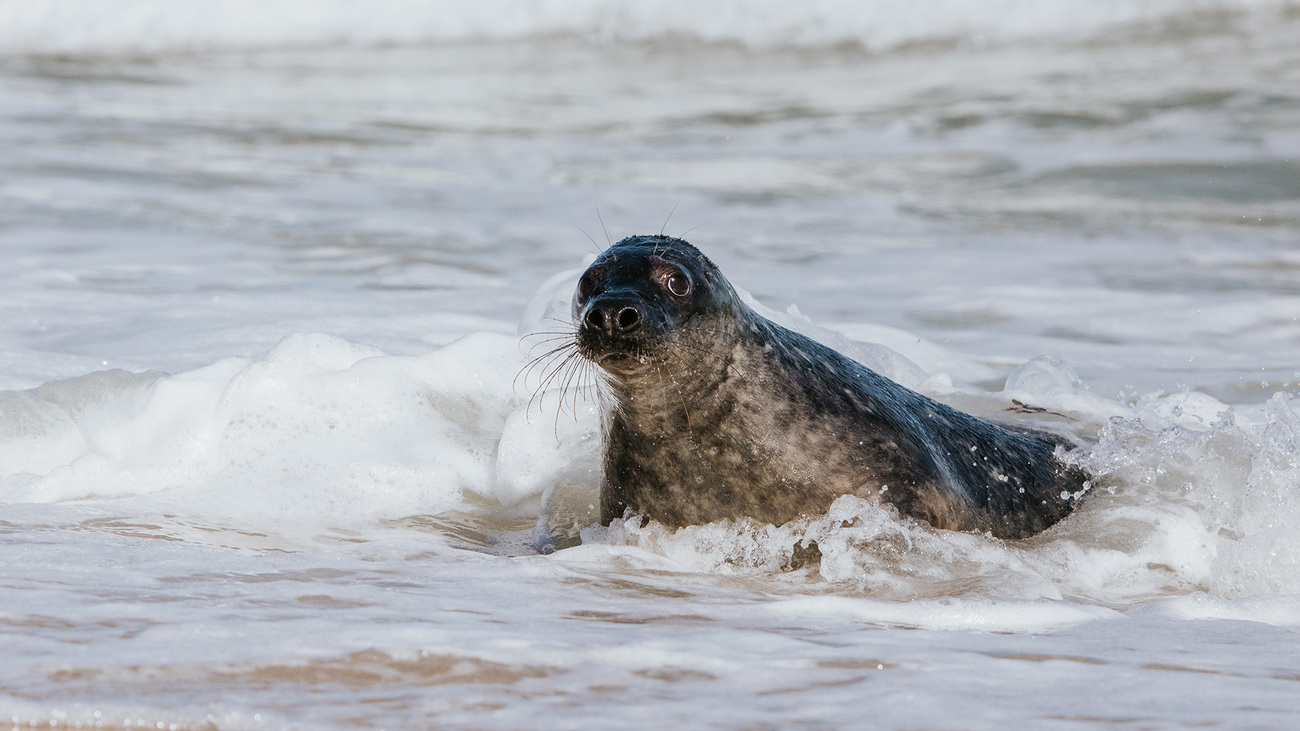
Commercial hunting
Though seals were hunted for their fur in the past, this particular type of hunting has been successfully regulated for some time now. However, commercial seal hunting still happens in some countries, including Canada, where politics continue to fuel a yearly seal hunt on the scientifically unsound premise that the seals are eating too much cod.
Thanks to widespread condemnation of the event and the nearly non-existent demand for seal products, conservationists are hopeful that the practice won’t last much longer.
Entanglement and bycatch
Unfortunately, seals can become victims of fishing practices even when they’re not the target. There are many different methods for catching fish, including putting nets and other gear into the water and pulling them up later with everything they’ve caught.
It’s possible for seals to get caught in these nets and become stuck or injured during their escape. It’s not just fishing gear that can cause entanglement, though. Box straps, twine, plastic bags, ribbon, string, cords, rubber rings, ropes, and cloth are all types of marine debris in which seals can become entangled.
In severe cases, debris can cut into seal skin, cut off blood to the extremities, or even cause strangulation. Deaths caused by entanglement are slow and extremely painful for seals. Entanglement happens far more often to pups and juveniles than it does to adult seals.
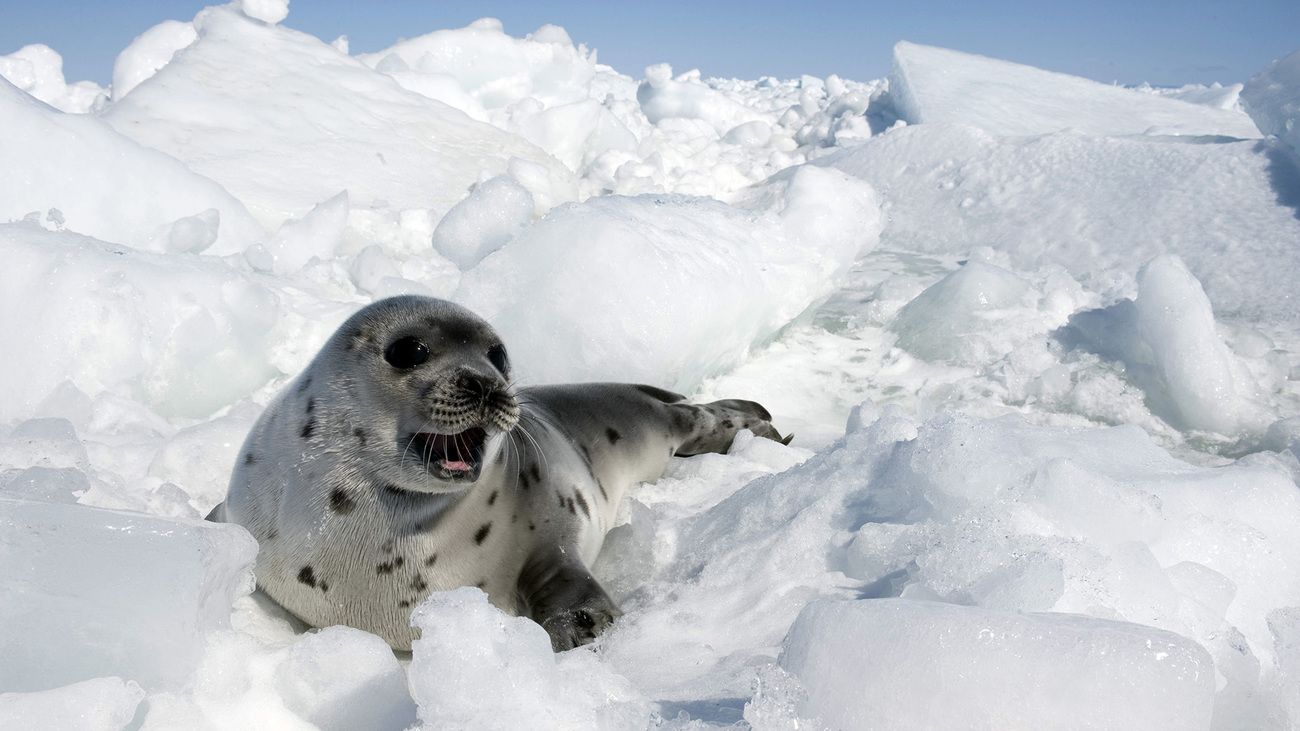
Climate change
Many seals live in polar habitats and rely on sea ice for resting, mating, and giving birth. As the sea ice worldwide continues to shrink, it affects the reproduction rates of seals. When a pregnant seal can’t find ice on which to give birth, she aborts the pups in the water rather than attempting a different type of land. If she chooses ice that’s too thin, it can break before the pups are fully weaned and able to swim.
Changes in oceanographic conditions also affect many other marine animals, including the fish seals eat. This has the potential to cause food limitations for seals in the future.
Diseases
Feral animals, domestic pets, or livestock may transmit diseases to seals. In 1997, a mass mortality event of Caspian seals in the Caspian Sea resulted in thousands of casualties. It was later attributed to the canine distemper virus. In 2012, 2016, 2021, and 2022, similar mass mortality events occurred in the same area, with the latest resulting in 2,500 seal deaths. The causes have not been confirmed, but Russian reports claim the seals did not appear to have been killed or died in fishing nets, making disease a likely possibility.
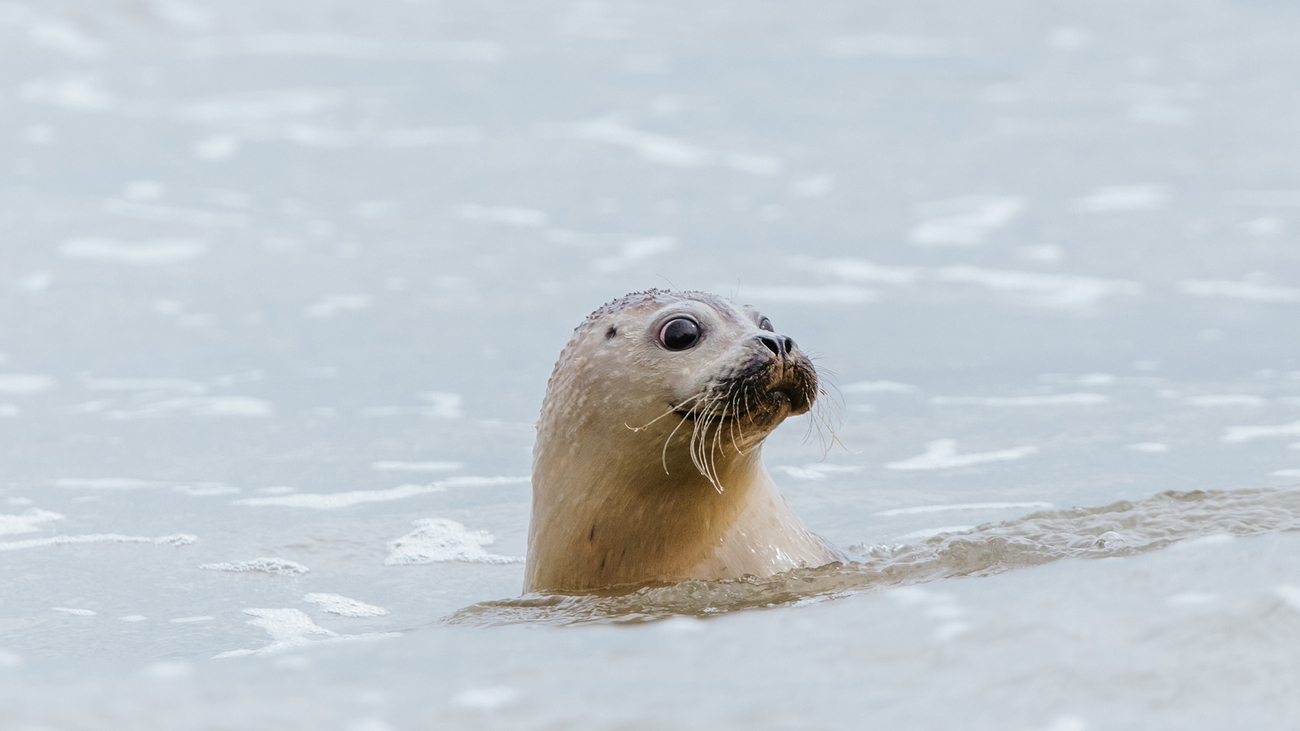
FAQs
Are seals dangerous?
Seals should always be viewed from a distance for the safety of you, your children or pets, and the seal. In the United States, regulations state that humans should keep a distance of 150 feet from seals to protect them from stressful interactions and ensure human safety as well.
If you see a seal on land that you think might be stranded, it’s best to call your local stranding response organisation. Trained volunteers will be sent out to observe the seal and determine whether it requires assistance.
What do seals eat?
Seals’ diets vary from species to species, though most eat a large amount of fish. Squid, molluscs, crustaceans, shellfish, and krill are also on the menu for some seal species. One standout species is the leopard seal, which hunts and eats penguins, seabirds, and other seals.
Another outlier is the crabeater seal, which has special interlocking teeth used to filter Antarctic krill from the water. The shape of their teeth looks like a drawing of a campfire. These krill make up 95% of the crabeater seal’s diet. The rest is made up of squid and fish—making the name ‘crabeater”’ quite misleading.
Walruses also have specially developed mouths. They have between 400 and 700 whiskers that help them search for food on the seafloor. Aside from their long tusks, all of their teeth are flat. This, along with their piston-like tongue, creates a powerful suction effect. They use this to eat a range of clams, snails, sea cucumbers, worms, and tunicates.
Are seals mammals?
Yes, seals are mammals, or more specifically, aquatic mammals. They have fur, feed their young through mammary glands, and have three middle ear bones. These are all the characteristics that separate mammals from reptiles and birds.
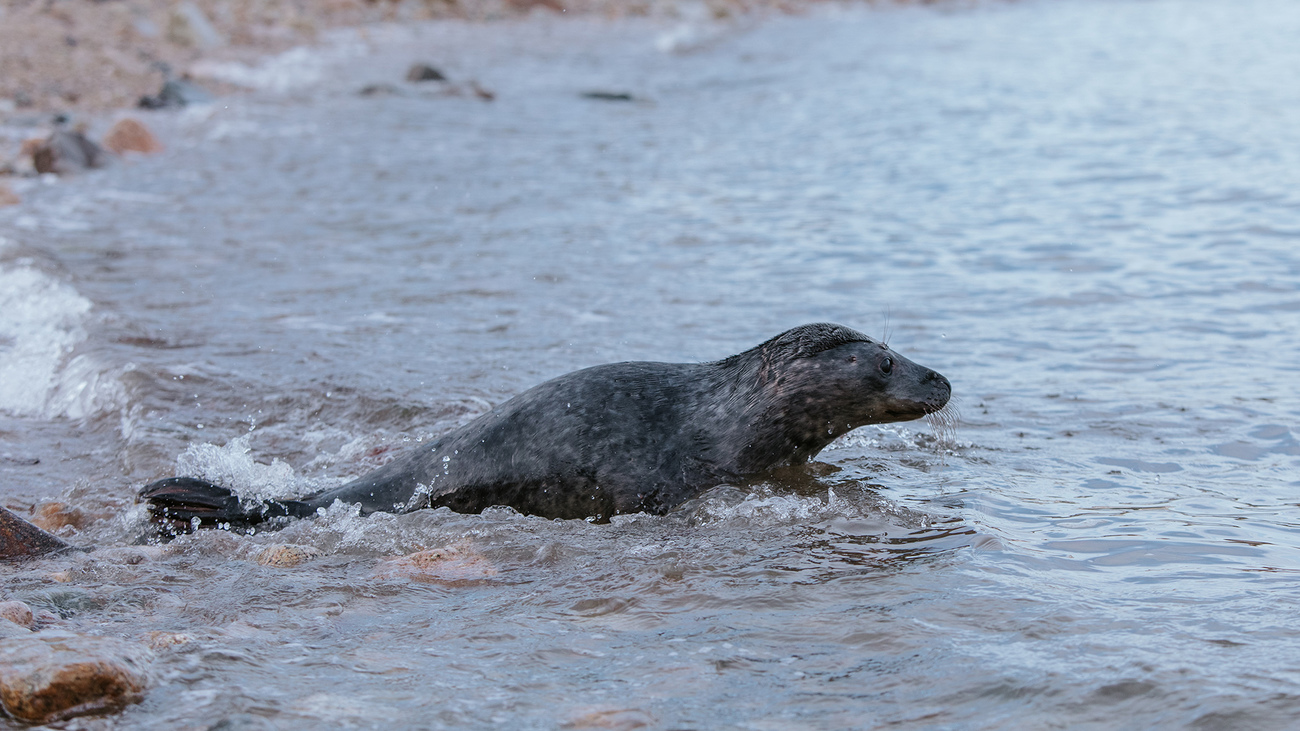
What’s the difference between a sea lion and a seal?
Seal lions are part of the “eared” group of seals with external ears, longer flippers, and a furrier appearance. “Earless” seals, on the other hand, have ears that are hidden beneath their skin and are known as “true seals.” Both belong to the natural group Pinnipedia but are members of different families.
Are seals related to dogs?
While seals and dogs share a common ancestor, their evolutionary paths diverged around 50 million years ago. This makes them only very distantly related, though they do still share similar traits, including their facial structures and the ability to bark.
Seals are most closely related to bears, weasels, otters, skunks, raccoons, and red pandas.
How long can seals hold their breath?
As semi-aquatic mammals, seals spend much of their time in water and often dive to find food. One fact about seals is that the elephant seal is a particularly talented diver who can hold its breath for around two hours. To do this, the seal slows its heart rate, stops breathing, and focuses blood flow to the brain, heart, and muscles.
Once underwater, they draw from internal oxygen supplies to keep their bodies functioning. More recent studies suggest that marine animals are able to store larger amounts of oxygen than humans due to special oxygen-binding proteins in their bodies.
How long do seals live?
Seals can live for up to 30 years.
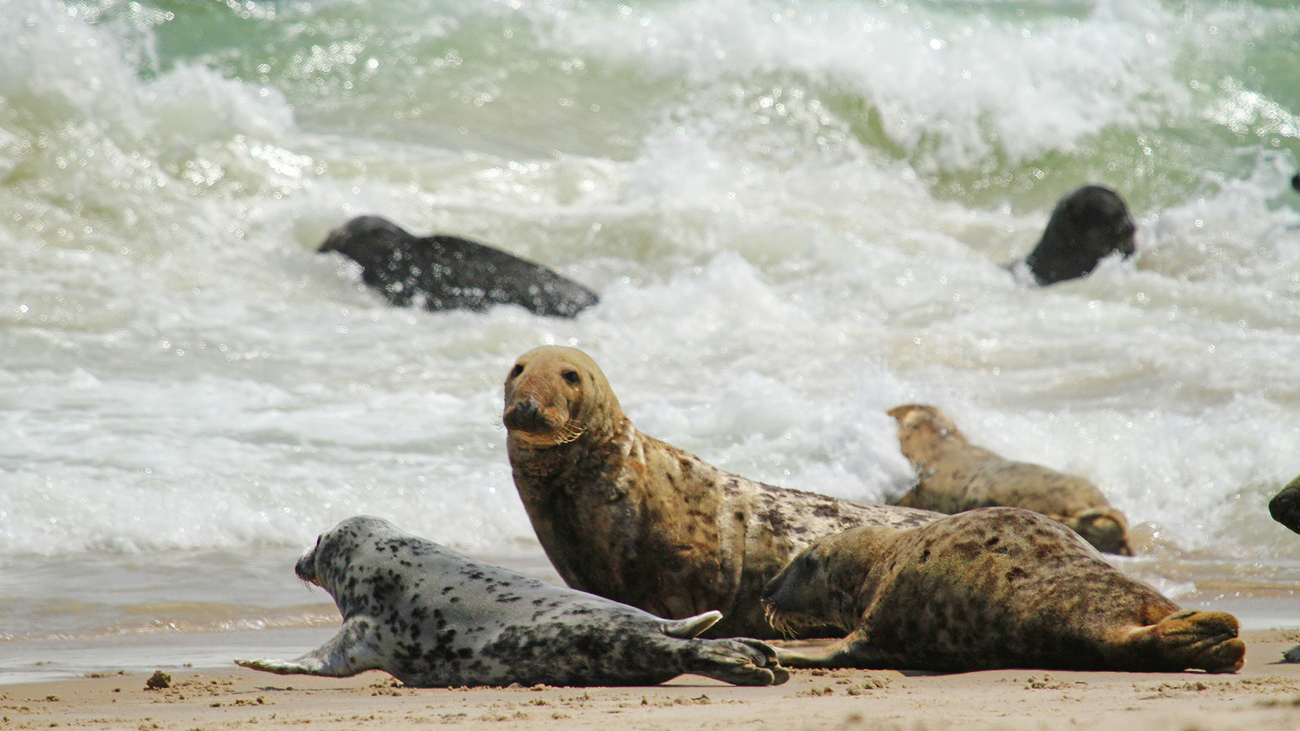
Our work
IFAW was founded on the mission of ending the commercial seal hunt in Canada. We travelled to the ice to observe and document the annual slaughter, bringing international media, politicians, and veterinary experts with us to observe the cruelty first-hand. Since then, our work has helped bring about monumental changes like the 2009 EU ban on seal products. This ban saved over one million newborn seals in the following 10 years. We continue to urge the Government of Canada to adopt sustainable alternatives to the commercial seal hunt to support the economy and local communities while protecting seals.
On Cape Cod, our Marine Mammal Rescue & Research team is revolutionising how we rescue seals. One method to rescue entangled seals, developed in partnership with The Marine Mammal Center in California, involves using a sedative dart with a specialised tracker embedded, which enables our team to capture, disentangle, and treat seals. We can minimise the suffering of seals, release them back to the ocean, and share our expertise with marine mammal rescue networks worldwide. We also promote coexistence with seals by working with communities to ensure that beachgoers can appreciate the animals at a safe and healthy distance, minimising additional human impact.
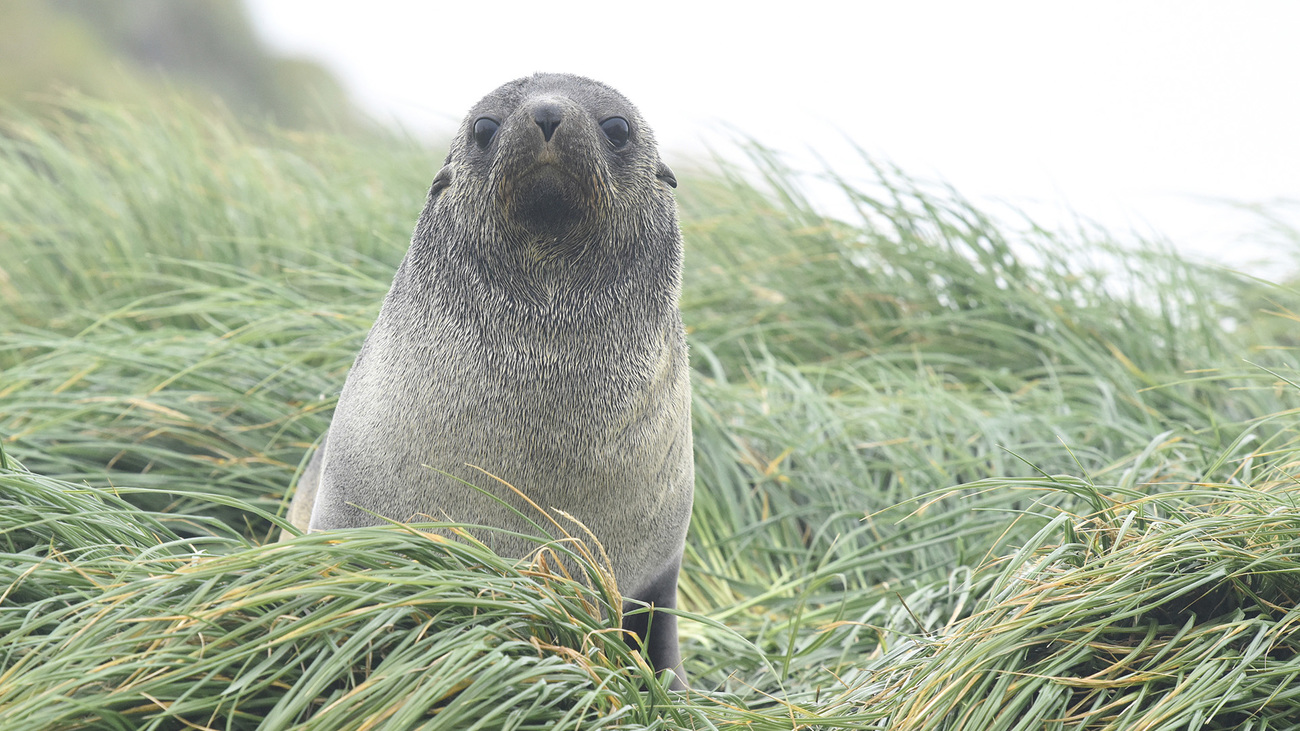
How can you help?
IFAW has a rich, 50-year history of advocating, rescuing, and protecting seals—but there is always more we can do. Make your 100% tax-deductible donation today to help keep our mission alive for another 50 years.
